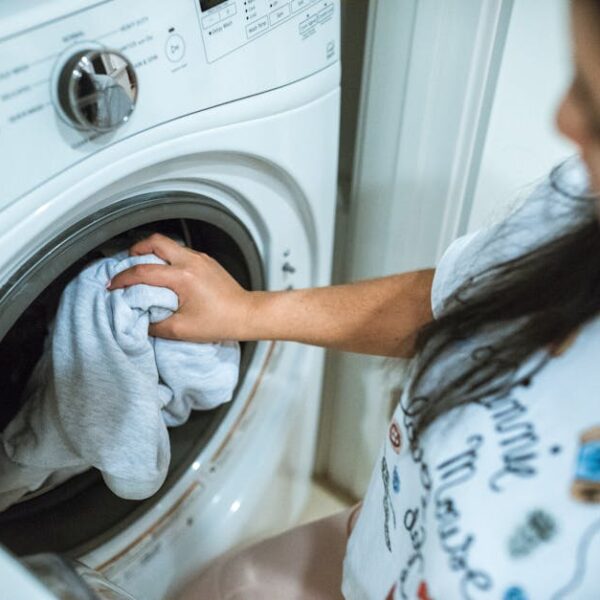Navigating through the seemingly complex world of baking essentials can often seem like a daunting task. Two notable contenders, bicarbonate of soda and baking soda, are commonly used in cooking and baking, yet their similarities and differences cause some confusion. Let’s clear the air and comprehensively explore these two compounds.
Understanding Bicarbonate of Soda
Bicarbonate of soda, also known as sodium bicarbonate or baking soda, is a white crystal-like powder primarily known for its alkaline properties. It occurs naturally in minerals and became a household name for its broad scope of use. The magic of bicarbonate of soda lies in its base behavior, which is particularly useful for neutralizing acids in culinary contexts.
Here are some of the primary uses of bicarbonate of soda:
- Baking: Bicarbonate of soda causes dough to rise
- Household cleaning: Scrubbing surfaces and removing stains
- Health purposes: Sodium bicarbonate can be used to treat heartburn
- Deodorizing agent: Effective in removing odors from closets and refrigerators
Pro tip: Store bicarbonate of soda in a dry and cool place and ensure it’s out of kids’ reach, owing to its potentially harmful effects when ingested in large quantities.
Demystifying Baking Soda
Simply put, baking soda is the common name for bicarbonate of soda in the United States. It is a leavening agent that reacts with acidic ingredients in batters or dough, releasing carbon dioxide bubbles, causing the mixture to expand and rise.
Here is a brief comparison table of bicarbonate of soda and baking soda based on their uses and properties:
| Bicarbonate of Soda | Baking Soda | |
|---|---|---|
| Use in Baking | Yes | Yes |
| Use in Cleaning | Yes | Yes |
| Health Application | Yes | Yes |
Remember that storing baking soda properly is key to maintaining its effectiveness and freshness. Always keep the box sealed and in a dry, cool place.
Similarities Between Bicarbonate of Soda and Baking Soda
At this point, you’re probably beginning to realize the truth – bicarbonate of soda and baking soda are essentially the same thing. Regardless of terminology, they refer to the same compound: sodium bicarbonate. The name variation is usually due to differences in regional terminology or the context in which they are used.
Key similarities between the two include:
- The chemical composition: Both are sodium bicarbonate
- The range of uses: Can be used in baking, cleaning, and as a health remedy
- Their reactions: Both react with acids to release carbon dioxide
However, these shared characteristics come with a few considerations. Stay tuned for the pros and cons of these versatile substances.
Differences and Misconceptions About Bicarbonate of Soda and Baking Soda
Despite the identical composition, misconceptions thrive surrounding bicarbonate of soda and baking soda. Many people mistakenly believe them to be completely different substances. However, these substances only differ in name, primarily influenced by regional language preferences.
Here are some common misconceptions, contrasted with their factual counterparts:
- Misconception: Baking soda cannot be used for cleaning, unlike bicarbonate of soda. The Fact: Both can be used for cleaning as they are the same compound.
- Misconception: Baking soda is only for baking. The Fact: Baking soda, like bicarbonate of soda, has a variety of uses, including cleaning, deodorizing, and even health remedies.
Pro tip: For any household or health uses, always ensure that you’re using food-grade bicarbonate of soda or baking soda. Industrial-grade versions may contain impurities not suitable for ingestion or topical application.
Practical Uses of Bicarbonate of Soda and Baking Soda in Daily Life
Perhaps one of the exciting aspects about bicarbonate of soda and baking soda is their versatility and range of uses in everyday life. They are not just kitchen staples; their application spans from home cleaning chores, health remedies to beauty regimes.
Here’s a checklist of activities you can carry out:
- Make your own homemade toothpaste
- Clean and polish your silverware
- Put out small grease or electrical fires
- Use it as an underarm deodorant
- Use it to tenderize meats
Remember: While you can use bicarbonate of soda and baking soda interchangeably, always use in moderate quantities. Too much in your food can lead to a soapy taste or cause an upset stomach.
Cooking, cleaning, or resolving minor health woes, bicarbonate of soda or baking soda is a ubiquitous part of everyday living. Enjoy experimenting, but remember to do so responsibly and safely.
Key Takeaway:
- Bicarbonate of soda and baking soda are essentially the same thing, also known as sodium bicarbonate.
- They are versatile compounds with numerous applications, including baking, cleaning, and health remedies.
- The misconceptions surrounding these two compounds mainly stem from regional language preferences and context of use.
- They have a profound impact on our everyday life and knowing their practical uses can make our day-to-day tasks easier and healthier.
Despite the confusion surrounding bicarbonate of soda and baking soda, knowing that they are essentially the same compound can simplify our understanding and usage. Their shared properties provide an array of applications, making them indispensable in our everyday life. Always remember to store and use these compounds safely and responsibly.
FAQs
Q: What happens if I consume too much baking soda?
A: Consuming large amounts of baking soda can lead to an imbalance in your body’s electrolyte levels and acidity, causing symptoms like nausea, vomiting, and diarrhea. It’s always important to use moderate amounts.
Q: Can I substitute baking powder for baking soda?
A: Although baking powder contains baking soda, they aren’t directly interchangeable. Baking powder is weaker, so if a recipe calls for baking soda, you’ll need to use more baking powder and this could affect the taste of your recipe.
Q: Why is sodium bicarbonate used in fire extinguishers?
A: Sodium bicarbonate releases carbon dioxide when heated, helping to smother and extinguish the fire. It’s also non-toxic and relatively safe to handle, making it a good choice for fire extinguishers.
Q: Can baking soda damage my skin?
A: Baking soda can potentially cause skin irritation, especially when used in large amounts or left on the skin for too long. Always test on a small area of your skin first, and avoid using on broken skin or if you have sensitive skin.
Q: Is baking soda safe for pets?
A: While baking soda is generally safe for pets, it should not be consumed in large amounts. If ingested, it might cause an upset stomach or more serious health issues.
Don’t forget to share this article if you found it useful, and explore more posts on our website to educate yourself about a wide range of topics.












